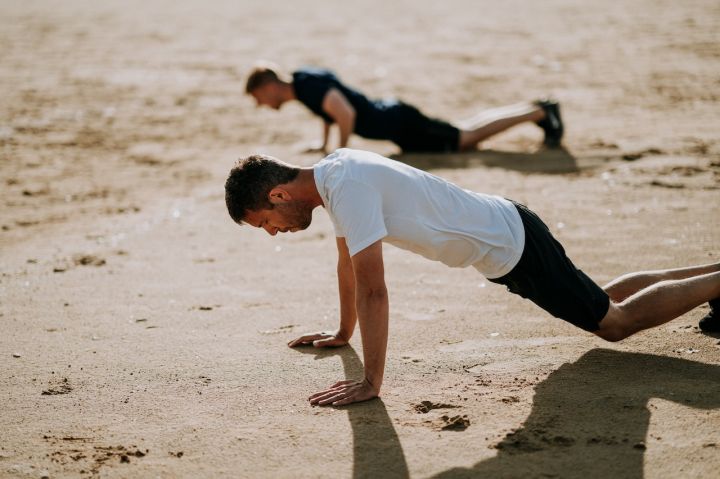The kidneys are the most common organ in our bodies. We tend not to think about them because they go about their normal daily business. However, only those who have unhealthy kidneys realise the importance of kidney health.

More than 100 million adults nationwide have chronic kidney disease, and many more are at high risk. What a staggering number. This number is rising, and these patients carry other conditions, including type 2 diabetes, heart disease and high blood pressure. Exercise can help prevent these causes and their negative impact on the kidneys.

However, new research suggests that regular fitness can be beneficial for those who already have kidney disease.
The main functions of the kidneys

The two kidneys act as the body's filtration system. Every 24 hours, about 200 quarts (about 189 litres) of fluid pass through them. 2 quarts contain filtered waste products, such as chemicals and other toxins, which are excreted in the urine. The rest contains useful substances, such as proteins and red blood cells, which are restored and returned to the blood. The kidneys also balance levels of sodium, potassium and calcium, release hormones to help regulate blood pressure and maintain blood ph balance

When this system fails, it cannot filter out waste products and kidney disease ensues. Dialysis becomes necessary and it filters the body's blood through a machine. This is a long and frequent process that changes our lives. Kidney transplants are also an option. , , and
Exercise and kidney maintenance

Exercise can help people with kidney disease by improving muscle function, lowering blood pressure, lowering cholesterol, maintaining a healthy weight and improving sleep. As with all aspects of health, healthy kidneys are better maintained through regular exercise.
One study showed that people with kidney disease benefited from exercise, despite the coexistence of various treatment conditions and different conditions in this population. Their daily care plan included 150 minutes of moderate intensity exercise per week.
Participants increased their maximum aerobic capacity by 11% after one year. Some also lost weight. Heart function improved. This is particularly important as people with kidney disease have a high chance of dying prematurely from heart disease. All these benefits were safely achieved.

When done correctly, fitness is possible for people who are challenged by multiple health problems. While it cannot cure kidney disease, being fit can reduce further kidney damage by keeping the rest of the body in tip-top shape and improving quality of life. It can also prevent risk factors that trigger kidney disease, such as type 2 diabetes, obesity and heart disease.
How to avoid kidney stones

Changes in the balance of water, salt and minerals in the urine can lead to kidney stones. Poor diet, habitual inadequate water intake, gout, crohn's disease and heredity are common causes of kidney stone formation. A stone may be as small as a grain of sand or as large as a golf ball. The size often determines whether it is treated by urination, or by medical intervention.
A recent us study followed 85,000 women over the age of 50 through diet, body mass index and regular exercise were examined. After eight years, the amount of exercise per week was associated with a reduced incidence of kidney stones. There was no effect of exercise intensity, only volume. This again proves that any form of exercise is better than none.

The study's leader, dr matthew sorensen of the university of washington school of medicine in seattle, said: "Every little bit (of exercise) makes a difference. It's not the intensity that matters, it's the exercise that matters. Some experts claim that exercise has a protective effect on the body as a whole, including changing the way the body processes nutrients and water.
Exercisers may develop healthier habits, which will affect their diet, sodium intake and bone health. Exercise can help bones maintain their own calcium levels, thus avoiding the need for calcium supplements. Calcium supplements are sometimes thought to be associated with the formation of kidney stones. Therefore, healthy older women are advised not to take calcium supplements. Their benefits for bone health are negligible compared to the risk of kidney stone formation.

Perhaps exercisers will also drink more water and better monitor their overall fluid intake. This prevents salt, minerals and other substances in the urine from sticking together and forming stones. Inadequate hydration is the most common cause of stones.
Get your heart rate up
Another study highlights water exercise as the preferred method of improving kidney function. Improved circulation increases the speed at which blood passes through the kidneys. Aerobic exercise can be very helpful for this. A study published in the archives of physical medicine and rehabilitation showed that dialysis patients who performed low-intensity exercise filtered urea (the main component of urine that the kidneys filter out of the blood) more effectively than sedentary dialysis patients.

Kidney stones are more common in men than in women. In the last 15 years, the incidence of kidney stones has increased by 70%, mostly in women. 9% of people will develop kidney stones at some point in their lives. Further research into the benefits of exercise for young women and men is on the agenda.
Exercise has long been thought to reduce the health risks that lead to kidney stones, mainly because of the control of heart disease, high blood pressure, obesity and type 2 diabetes. Overall, these health problems can increase the risk of kidney problems.
Another alarming figure: Around 850 million people worldwide have kidney disease, chronic kidney disease.

There is evidence that exercise is a health factor that benefits from exercise, and it makes sense to add it to your prevention and treatment plan. Stay hydrated and healthy at the same time and start your exercise and fitness programme.

